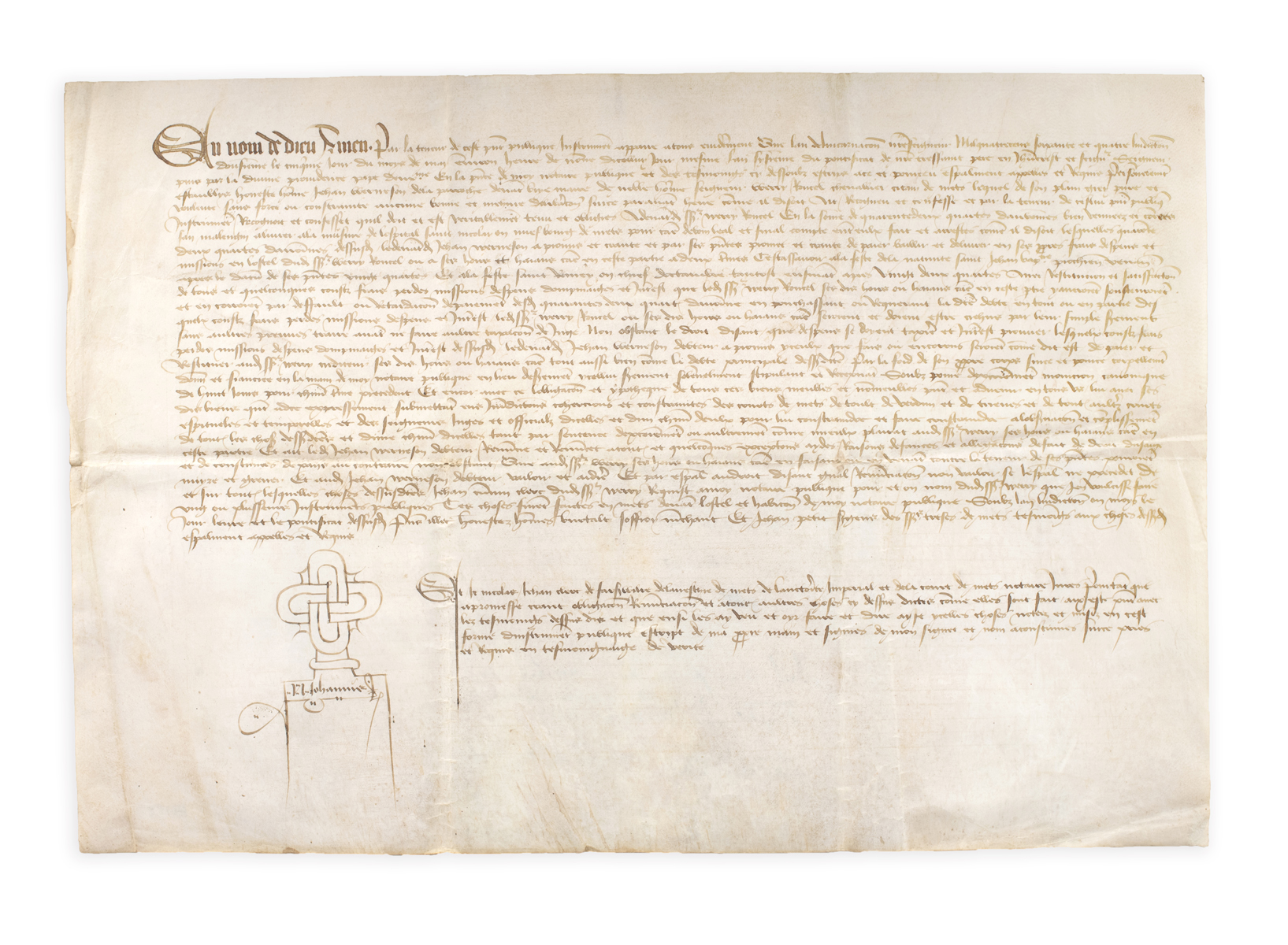BOLT COURT BEFORE JOHNSON
[LONDON.]
Indenture tripartite concerning ‘two severall mesuages or tenements scituate lying and being in or neere fleetstreete in the parish of St Dunstan in the West in London … in the severall tenures or occupacons of Rivett Eldred Esq then Sir Rivett Eldred knight and Dorothy Bulkeley Widd[ow] or of theire severall Assignee or Assignes, togeather with all Shopps Cellars Sollers [garrets] Chambers roome[s] edifices buildings courts gardens voyd grounds wayes passages yards backsides lights easements comodities and appurtenances whatsoever to the said messuages or tenements or either of them ….’
[London], 20 May 1659
16 leaves, 15 x 12 inches, written on the rectos only, stitched into a vellum wrapper made from an old deed, lettered ‘Boult Court writings Fleet Street’, wrapper worn, text in very good condition apart from slight fraying.
Added to your basket:
Indenture tripartite concerning ‘two severall mesuages or tenements scituate lying and being in or neere fleetstreete in the parish of St Dunstan in the West in London … in the severall tenures or occupacons of Rivett Eldred Esq then Sir Rivett Eldred knight and Dorothy Bulkeley Widd[ow] or of theire severall Assignee or Assignes, togeather with all Shopps Cellars Sollers [garrets] Chambers roome[s] edifices buildings courts gardens voyd grounds wayes passages yards backsides lights easements comodities and appurtenances whatsoever to the said messuages or tenements or either of them ….’
In 1641 Richard Baskerville, described as gentleman, acquired five messuages (houses) in or near Fleet Street from Katherine, the widow of Sir Simon Baskerville, the King’s physician who died that year and was buried in St. Paul’s Cathedral. By an indenture dated 5 August 1651 he granted a 500-year lease on two of the messuages at a peppercorn rent to Thomas Foote, citizen and alderman in consideration of £600 with the proviso that the indenture could be rendered void if he paid £624 to Foote on 8 February 1652. This was followed by a series of further conditional assignments of the indenture leading up to the present indenture tripartite.
By 20 May 1659 Richard Baskerville and William Bowdler, gentleman, had ‘true title and lawfull Authority’ to assigne the unexpired part of the 500-year lease to Matthew Howard, merchant; at the same time Samuel Howard, citizen and haberdasher, agreed to indemnify William Bowdler from ‘all suits and troubles that shall happen or arise by reason of … this present Assignment’. One further party who had been involved in certain of the earlier assignments was William Meggs, merchant.
This is a copy of the Howards’ part of the indenture tripartite of 1659, which would have been signed by Baskerville, Meggs, and Bowdler (the signatures here are scribal). Baskerville’s part was signed by the Howards, Meggs, and Bowdler, while the third part, retained by Meggs and Bowdler, was signed by Baskerville and the Howards.
A very complicated chapter in the early history of Bolt Court. The most famous resident, a century later, was of course Samuel Johnson.

